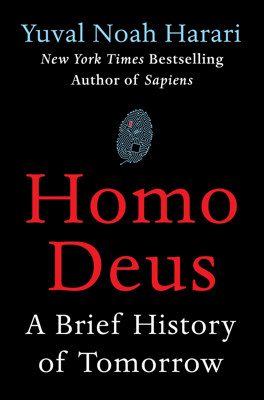The Great Decoupling
Liberal Philosophy Undermined by Scientific Discoveries
The chapter discusses how recent scientific advancements challenge the foundational principles of liberal philosophy, which cherishes the belief that every individual's choices are sovereign. Three developments are outlined that may render individual choices obsolete. Firstly, as technology evolves, humans may lose their economic and military usefulness, diminishing their societal value. Secondly, while humans in aggregate may still hold value, the uniqueness of the individual might be dismissed in favor of algorithmic efficiency. Thirdly, a new elite could emerge, consisting of "upgraded" superhumans with significantly enhanced capabilities, leaving the rest of humanity behind both figuratively and economically.
The Rise of Non-Human Algorithms and Elitism
The chapter affirms that as autonomous technologies and AI become more adept at making decisions, the individual’s role in decision-making processes might significantly dwindle or shift to these systems. Historically, the human struggle was against collective power structures, but the new threat emerges from within as decision-making algorithms installed on personal devices may start dictating personal choices. These systems could evolve from simple helpers to authoritative entities, essentially disintegrating human autonomy piece by piece.
Economic and Biological Inequality
With the progression of medical technology aimed not just at healing but at enhancing human capabilities, a stark divide might appear between those who can afford these advancements and those who cannot. While past medical revolutions benefited humanity at large by addressing mass needs, future medical progress may target individual enhancement, thereby fostering not health but inequality. This augmentation may split humanity into classes not merely divided by wealth but by capabilities and even species, as some humans become biologically superior.
Political and Philosophical Implications
The potential rise of a biologically enhanced elite posits severe implications for liberal values, which emphasize equality and individuality. The chapter argues that if key decisions and societal steering are assumed by algorithms or a privileged few, the central tenets of liberalism—individual worth and democratic participation—would face obsolescence. Even if superior decision-making technologies bring about greater efficiency or societal good, they could dismantle the very framework of liberal democracy by removing the individual's right to choose, perhaps relegating traditional human roles to the annals of history and fiction.
Conclusion
Technological advancements and their influence on the socio-political landscape suggest a possible future where human individuality and liberal democracy might be challenged or radically transformed. The thesis put forth is that while progress may seem beneficial, it could inadvertently seed unprecedented global inequality and question the very essence of human autonomy and democracy.
